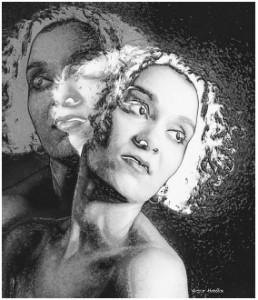From Paul’s Letter to the Church in Rome:
In all these things we are more than conquerors through him who loved us. For I am convinced that neither death, nor life, nor angels, nor rulers, nor things present, nor things to come, nor powers, nor height, nor depth, nor anything else in all creation, will be able to separate us from the love of God in Christ Jesus our Lord.
(From the Daily Office Lectionary – Romans 8:37-39 (NRSV) – March 15, 2013.)
 These may be my favorite words from the pen of the Apostle Paul. My mentor during my education for ordained ministry, who also became my first boss after ordination, often referred to these verses and would add, “Not even ourselves.”
These may be my favorite words from the pen of the Apostle Paul. My mentor during my education for ordained ministry, who also became my first boss after ordination, often referred to these verses and would add, “Not even ourselves.”
But there are times when I wonder about things Paul seemed not to know about. Sure, he puts in that great, inclusive catch-all phrase “nor anything else in all of creation,” but what about drugs, addiction, mental illness, brain dysfunction . . . . What about the things that make us no longer us, the things that separate us from ourselves?
We human beings can suffer all sorts of trauma, large or small, that can lead to separation from ourselves, from others, and from the meaning of life. Even simple depression, anxiety, or just getting “off-track,” can create a sense of separation or alienation. We may feel like we are living in a sort of fog; our thinking may become clouded. We may find ourselves unable to access our feelings, and simply not be aware of or engaged in the world around us. We seem to be functional, but we are living a life separated from ourselves and from those who love us. Dissociation becomes a way of life. People in such a state are vulnerable to quick fixes and bad habits, behaviors and addictions that promise quick relief.
My father was an alcoholic who drove off in the middle of the night, angrily separating himself from his family, and a few hours later dying in a single-vehicle automobile accident. He was “not himself;” he was, in a real sense, separated from himself. My mother-in-law took years to slip away deep into the darkness of Alzheimer’s disease; for the last few years of her life, she wasn’t there. In a very real sense, she was separated from herself.
Last Sunday’s gospel lesson was the parable of the prodigal son, a story of separation and estrangement. The story is that the younger of two sons demands his inheritance from his father, takes the money and squanders it, and ends up living as a starving swineherd in a foreign land. There is this wonderful line in which Jesus says of him, “When he came to himself he said, . . . ‘I will get up and go to my father . . . .'” (Luke 15:17-18) “When he came to himself…;” he was separated not only from his father, but from himself. Nonetheless, that separation was overcome and there was reunion first with himself and then with his father.
I do believe in divine grace that precedes any human decision we may make. God’s grace operates in no way dependent on anything we may have done or failed to do. In the words of The Book of Common Prayer, God’s “grace . . . always precedes and follows us” (Collect for Proper 23, pg 234); it allows us to engage our free will to choose reunion, to choose to not be separated, to choose salvation. And I hope that God makes that choice for us when, because of mental illness, alcohol, drugs, brain dysfunction or injury, or whatever reason we are unable to make it for ourselves, when we cannot “come to ourselves.” Because nothing can “separate us from the love of God in Christ Jesus our Lord,” not even ourselves. Nothing!
====================
A request to my readers: I’m trying to build the readership of this blog and I’d very much appreciate your help in doing so. If you find something here that is of value, please share it with others. If you are on Facebook, “like” the posts on your page so others can see them. If you are following me on Twitter, please “retweet” the notices of these meditations. If you have a blog of your own, please include mine in your links (a favor I will gladly reciprocate). Many thanks!
====================
Father Funston is the rector of St. Paul’s Episcopal Church, Medina, Ohio.



Leave a Reply